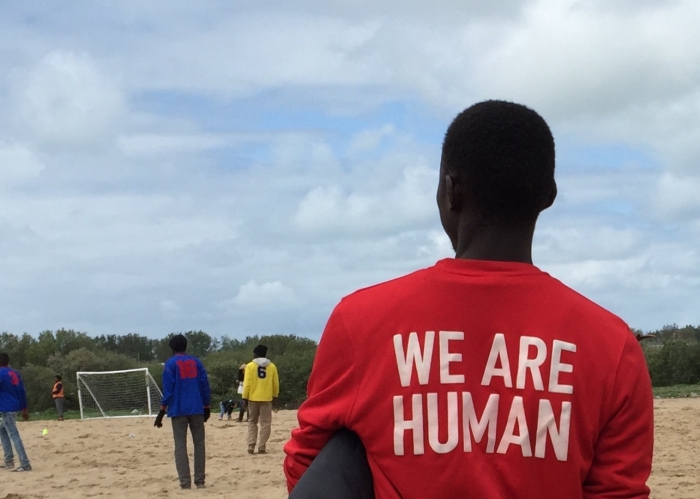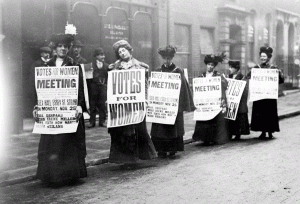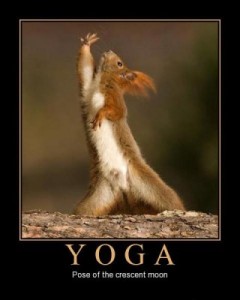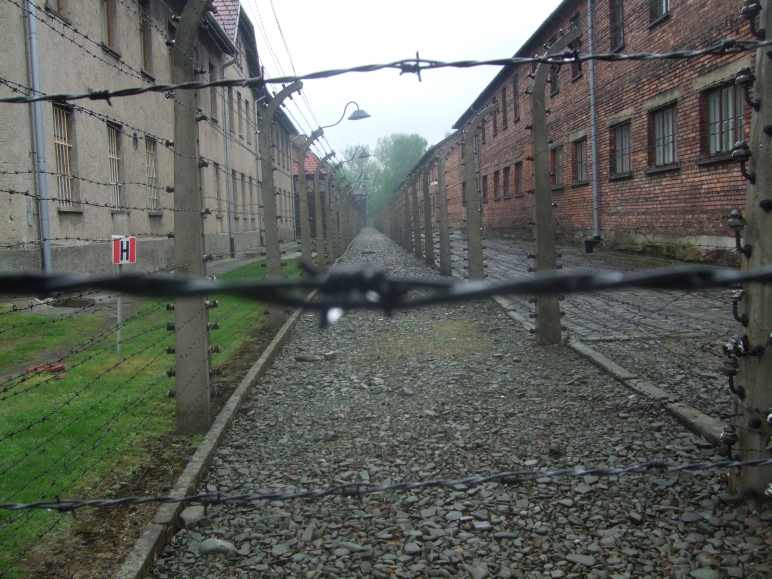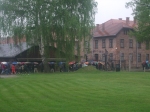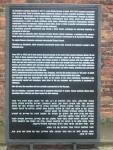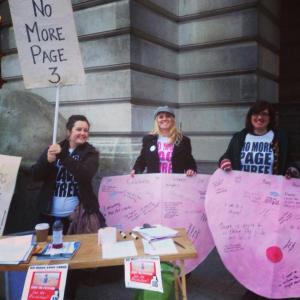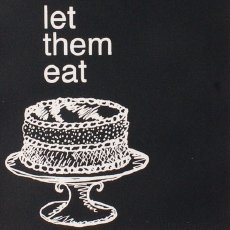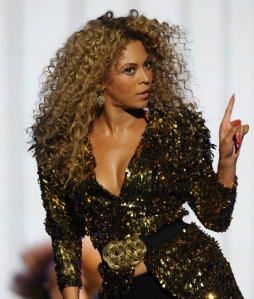
A piece I wrote for Vagenda Magazine in October 2014
There are some things that I will defend to the death: my family, my friends, my cat, my right to voice an opinion, my right to drink tea and watch EastEnders – you know, the universal stuff. Then there’s feminism. And Beyoncé.
In an article published this week Annie Lennox took it upon herself to question Beyoncé’s feminist credentials, dismissing B-Kno’s own particular brand as ‘feminism lite’. Clearly I was living in a cave the day that they made Annie Lennox the all knowing Supreme Leader of Feminism, deciding what and who fits the definition of feminism proper (or, to use her analogy, er, Full Fat Feminism…?)
As a Beyoncé fan, I’m about to get ***Flawless on this shit, but as a feminist I am just shaking my head in disappointment. Because this is just another example of one self-proclaimed feminist “calling out” another self-proclaimed feminist, telling her that she’s not quite up to the job of being a Proper Bona Fide Feminist. Then, last week in the Guardian, Roxane Gay also had a pop at “celebrity feminists.” I am just so sick of this.
One of the things that makes me proud to be a feminist is feminism’s commitment to the protection of identities, particularly the identities of minority and marginalised groups. We – quite rightly – defend the right of anyone to define their own sex, their own gender, and their own sexuality. We wouldn’t dream (or at least I hope we wouldn’t) of telling someone that they were ‘woman lite’, or ‘female lite’, or ‘lesbian lite’. That would be outrageous for many reasons, not least because, the beauty of identity is that it is defined by the owner first, and last. I don’t care if you are the brainchild of Germaine Greer, Emmeline Pankhurst and (my own hero) Jessica Valenti, but you have lost your mind if you think that I am about to sit here and let you tell me – or anyone else – that I am ‘less of a feminist’ simply because I don’t fit your own specification criteria.
It pisses me off when people, especially women, start questioning how much of a feminist other women are. Doesn’t feminism have enough of a mountain to climb without the internal hating and face stabbing? Can’t we start propping each other up, instead of pulling each other down? Discussion and debate are crucial, of course – vive la difference! – but can we steer clear of this endless patronising condescension of others? And, let’s be clear about this: questioning the credentials of another woman’s feminism does not make you any more of a feminist. Beyoncé is a feminist for many reasons, but the most important of these is this: she is a feminist because she has told you that she is a feminist. Accept that.
So what is it that Lennox is alleged to have said? Apparently, her words were thus: ‘I would call [Beyonce’s feminism] ‘feminism lite’, L.I.T.E. I’m sorry. It’s tokenistic to me…’, before going on to say, ‘I have issues with it. Of course I do…. I think what they do with it is cheap and … yeah. What can I tell you? Sex always sells.’
Is this the sound of a woman calling out another woman for what she is wearing? In 2014? Is this shit for real? You’re going to look at the most successful female artist in the world, who only one month ago beamed the word FEMINIST into the homes of millions of people around the world during her MTV VMA performance, and you’re going to start hating on her feminism, because she’s doing it in a leotard? Does that mean I am also less of a feminist when I am wearing a bikini on the beach? Am I only a feminist when I am fully clothed? Fuck this shit! Beyoncé may not be writing manifestos for the sisterhood or penning contributions to feminist academia, but let’s not fall into the trap of thinking that what she is doing – what she stands for – is any less significant. Academic snobbery needs to sod right off: if you really want to spread a feminist message to the masses, you need to look beyond learned professors and academics, because the truth of the matter is that most people do not read them. What most people do is listen to music, watch TV, and read magazines. And tell me, who has never had an idol? Beyoncé has been mine since circa 1997, and one of the BIG reasons this is the case is because she has always stood for women.
I remember how, at 14 years old, I was completely bowled over by the confidence of this girl who looks into the camera during No No No and sings, “What’s the problem, baby? Never had a girl like I?” At 16, I was listening to Hey Ladies in delighted disbelief (Sample lyric: “Hey ladies…. why is it that we never seem to just have the strength to leave?”) Then, there was Independent Women – this was the anthem of my late teens. Here was a girl, only a couple of years older than me, writing a song encouraging women to become – and stay – economically independent (“I pay my own fun … and I pay my own bills”). Encouraging women to rely on themselves alone (“depend on no one else to give you what you want”); to strive for equality in love (“always 50/50 in relationships”); and even to be their own sexual being (“when it’s all over, please get up and leave”). I could go on. Beyoncé was, in some way or another, there for most of my life – the teenage angst, the first relationship, the break up, the crises of confidence, bereavement, depression, the whole schubang.
So la Lennox doesn’t think B-Kno quite fits the feminist bill? Okay, let’s take this back to basics. Feminism is a belief in the ‘social, political and economic equality of the sexes’*, right? (*NB. It is worth noting that, thanks to an excerpt from Chimamanda Ngozi Adichie’s Ted Talk ‘We should all be feminists’, that appears on Beyoncé’s 2013 eponymous album, millions of album-purchasing consumers around the world are now familiar with this very definition…) Well then, let me count the ways.
Social equality of the sexes, you say?
When I was at university, I lived with my aunt, uncle and my two little cousins – who just happen to be Two of My Favourite People In The World. I love them like they’re my sisters and I couldn’t be prouder of the women they have become: they are awesome. When they were little, we would often find ourselves dancing in the kitchen, shaking our butts and waving our arms to all of my favourite artists; Shakira (from the early days, pre-English language transition), Michael Jackson, Justin Timberlake – and, of course, Destiny’s Child and Ms Beyoncé Knowles. That’s right, a 19 year old me and two little girls of just 5 and 8 having the time of our lives strutting our stuff to Independent Women whilst doing the dishes. A few years later, when I watch them practising their routines for their Hip Hop dance class, there is more than a little bit of Beyoncé in their attitude, in their personas, in their confidence. They love her, they look up to her, I’d even go so far as to say that they take on their very own Ms Sasha Fierce when they are on that stage.
When the younger of the two once said to me – before she was even a teenager – that she thought that her thighs were too big, how do you suppose I tried to reassure her? By giving a speech about how we, as girls and women, should strive to break free from the shackles of the patriarchy and its bullshit standards of beauty? No. Look at Beyoncé, I tell her. She has legs like you – they are not stick thin, they have muscles and curves and are all kinds of fabulous and strong! And isn’t that just so beautiful? A few months ago, her sister (by then a 19 year old student) told me that she had been sick with nerves because she had to give a presentation in front of her peers. Do you know how she changed her mindset? By asking herself what Beyoncé would do (answer: strut onto that stage like a goddess and make sure that every last person in that room was listening!) I shit you not. Needless to say, she did the presentation. These are small examples of how Beyoncé has impacted the lives of two little women that I love – they may not be academic examples, and they may not contain statistics demonstrating the feminisation of the masses, but to give two people that I love the kind of confidence that we would hope for all women, is a smidge more than feminism ‘lite’ to me.
And then there’s her band. Beyoncé has, for some years, toured with an all female band. The reason for this? Because she wants young women to see examples of other women playing – and owning (see Bibi McGill) – their own instruments. How many times have we seen a female artist flanked and propped up by an all-male (or nearly all-male) band? To see an-all female band, supporting a female artist is a very powerful message – this is literally sisters doing it for themselves. This is women in control of their own creativity, this is an all-woman cast selling out all-women shows around the world. This is a message to the hundreds of thousands of girls that go to any one of these shows: you too can own this stage. This is a socio-political message wrapped up in pop culture, and the message is loud and clear: a woman’s place is out in front, a woman’s place is at the top of the game, a woman’s place is taking control of her own career, her own work, a woman’s place is challenging the accepted status quo of male-dominated industries. A woman’s place is being the first solo female artist in over 20 years to headline one of the biggest music festivals in the world, whilst being 3 months pregnant and in the face of scepticism about her appearance at the altar of Glastonbury (get over yourselves, haters!) Women, go out, and own your shit.
What’s that? Political equality of the sexes?
Beyoncé is one of the founders (along with actress Salma Hayek Pinault and Frida Giannini) of the Chime For Change campaign: a global campaign that strives to fund projects working towards equality for girls and women in the areas of health, justice and education. A 2013 concert at Twickenham in London was beamed around the world, and was supported by politicians, activists and celebrities alike. Performances from some of the biggest artists on the planet were interspersed with video clips that sought to educate and increase awareness of the plight that women face at home and around the world. One video clip that will stay with me was that of a young woman who talked about being sexually assaulted on her way to work. Standing on a crowded tube, a man had masturbated himself up against her; it was only when she got to work that she realised that she had semen on the back of her legs. Twickenham stadium fell silent. When Beyoncé herself appeared for the closing performance, she used her backdrop screen as an opportunity to beam images of well known women (Hilary Clinton, Maya Angelou, among others) to the thousands of us in the stadium, and the millions watching at home. The message was clear (and written above the stage in big bold letters); none of us can move forward, if half of us are held back.
In the run up to the 2008 presidential election, Beyoncé, alongside her husband, Jay Z, went on the campaign trail for then-Senator Barack Obama, encouraging people to vote, encouraging people to make themselves heard. She walked the lines of people waiting to go inside to vote, she thanked them and reassured them that what they were doing was too important to forgo. So here you have one of the most famous people in the world encouraging her compatriots to be politically active, encouraging all people (women included) to take part in their country’s election, to make their votes count. Four years later she would again voice her support for President Obama and, once again, encouraged Americans to vote via a number of posts to her website and Instagram page. In July 2013, when George Zimmerman was acquitted on charges of murdering the black teenager Trayvon Martin, she publicly backed demands for a civil rights case and joined hundreds of people protesting in New York City, as part of a broader 100-city demonstration across the US. In March 2013, she endorsed the campaign for Marriage Equality, altering the lyrics to Single Ladies in the process (“If you like it, you should be able to put a ring on it!”).
She has publicly celebrated the activist Malala Yousafzai by sharing the young Pakistani schoolgirl’s story on her webpage, highlighting the reality of the many women living in the shadow of the Taliban. She helped the First Lady, Michelle Obama, launch her Let’s Move campaign by reworking one of her own songs, encouraging kids to get active. She was one of a group of celebrities and activists who launched the Demand a Plan to End Gun Violence in the wake of the Sandy Hook shootings of 2012. She backed Sheryl Sandberg’s BanBossy campaign, a social media campaign encouraging women and girls to lead (“I’m not bossy, I’m the boss”). She may not be running for office, she may not be drafting legislation for the Senate, but Beyoncé has what most politicians do not have: she has credibility with the young. She has credibility with women (nb. I am not speaking on behalf of all women here – that would be foolish). The very act of being politically active, of being socially aware, of giving a damn about what’s happening in the world, sends a very strong message to the millions who look up to her. Politics is not just for the politicians, it’s not just for the male, white and middle-aged. You too can stand up and be counted.
And, here it is, the big one:
The Economic Equality of the Sexes
At this point, I am tempted to be lazy and refer you back to my previous paragraph about Independent Women. As it is, I’m feeling a bit more generous than that. First things first, Beyoncé is fricking loaded. She has, in her own words, got ‘so sick and filthy with Benjis [she] can’t spend.’ Estimates put her wealth at around the $500 million mark. She is one of the best selling artists of all time: the trusted Wiki tells me that her solo sales are hovering around 130 million worldwide, with an additional 60 million sold by Destiny’s Child. In 2011, sceptics were shocked when she parted ways with her manager – and father – Mathew Knowles, wondering if, by managing herself, B-Kno had taken on too much. Her response? She was living her own message: ladies, it’s time to get independent. She owns her own company, Parkwood Entertainment; co-owns her own fashion label, House of Dereon, alongside her mother, Tina Knowles; she has sponsorship deals aplenty. To paraphrase and update Sir Mix-a-Lot, baby got bank!
I don’t know about anyone else, but seeing one of the most famous women in the world sitting on a self-created wealth of truly eye-watering proportions, is pretty fricking inspirational. It is thought that her own personal fortune matches that of her husband, Jay Z: economic equality of the sexes? They are a poster couple for it. Of course, the wealth of one woman doesn’t mean that the task is done, we have a long way to go to reach universal economic equality, something that she herself acknowledges: in 2013 she penned an essay condemning gender equality as a myth, before going on to say that it was time to stop this shit: “Equality will be achieved when men and women are granted equal pay and equal respect.”
I have tried to outline a few examples of how Beyoncé is a fricking awesome feminist. I have no doubt that there will be people who will disagree with much, if not all of what I’ve said – that is the nature of the internet. But hopefully there will also be people who will give Beyoncé the credit she deserves; she has been a champion of women since before it was cool to be a champion of women. Hopefully some will understand what I am, above all, trying to say: that a person’s identity is theirs alone, and it is not for anyone else to contradict something that is so fundamentally a part of who we are as human beings. Whether you love or loathe Beyoncé, please do not presume to tell her that her feminism is not good enough; she’s doing her feminism, her way, on her terms – and isn’t that, in itself, feminist?
– See more at: http://vagendamagazine.com/2014/10/defending-beyonces-feminism/#sthash.VsXVe6n1.dpuf
